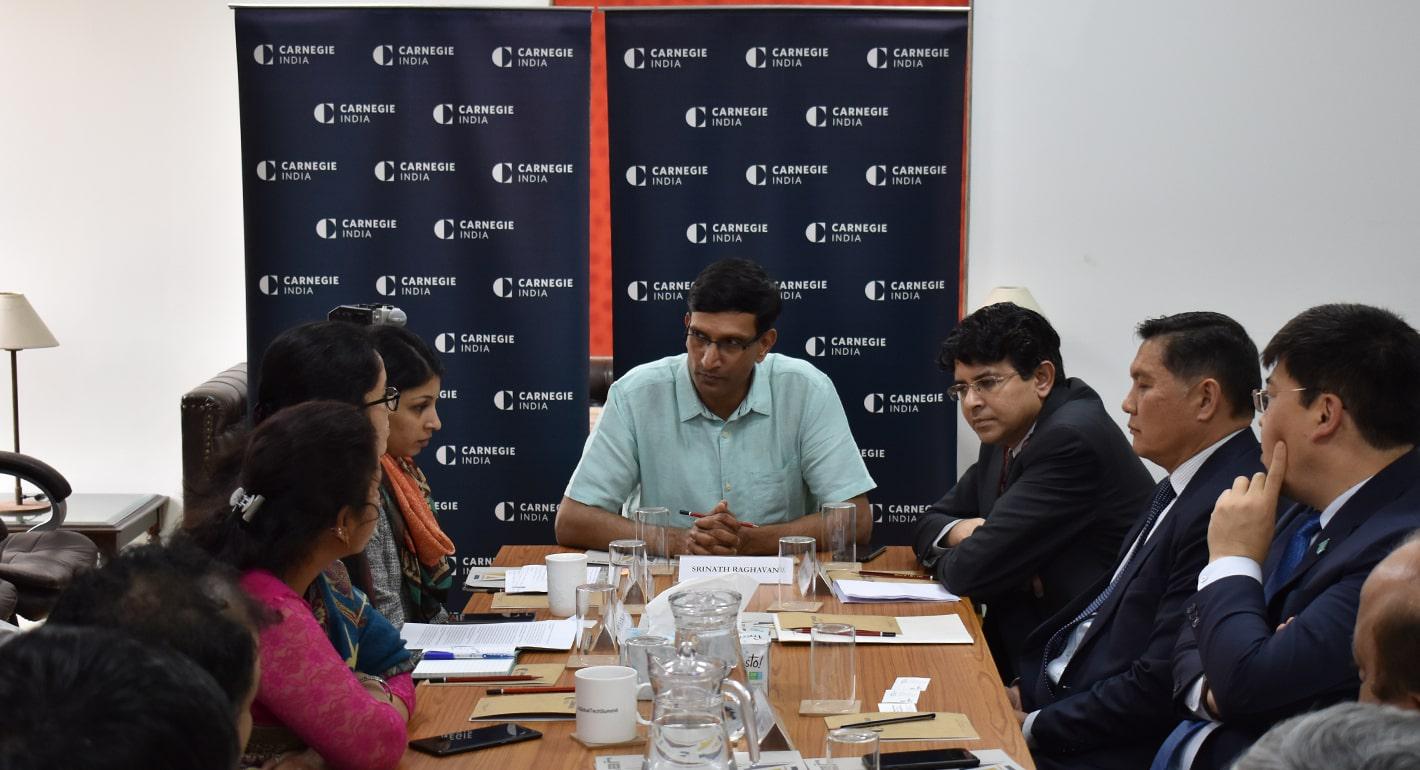Registration
You will receive an email confirming your registration.
India’s “Connect Central Asia” policy got a new lease of life in 2015 following Prime Minister Narendra Modi’s visit to all five nations. Since then, both sides have enhanced cooperation in the fields of defense, energy, and connectivity. India has also shed its past practise of focusing solely on engagement at the bilateral level and developed a new coherent approach toward the region. This renewed focus on the region can be attributed to Central Asia’s changing geopolitics, particularly its location at the crossroads of various initiatives to develop overland connectivity across Eurasia. In a recent Seminar issue, titled “Reintegrating Central Asia,” Rhea Menon and Sharanya Rajiv curated perspectives, from young scholars in the region and beyond, about regional integration in Central Asia, its potential to connect Eurasia, and engagement with external powers such as India, China, Russia, and the European Union.
Carnegie India hosted a discussion on the strategic and economic significance of Central Asia with Rhea Menon Sharanya Rajiv. Manish Prabhat, joint secretary (Eurasia) at the Ministry of External Affairs, Asein Isaev, ambassador of the Kyrgyz Republic to India, and Yerlan Alimbayev, ambassador of Kazakhstan to India, shared their insights. The discussion was moderated by Srinath Raghavan.
DISCUSSION HIGHLIGHTS
- External Actors in Central Asia: Participants discussed the geopolitical importance of Central Asia and described it as a point of convergence for many external powers. They noted that following the dissolution of the Soviet Union, the five new Central Asian Republics (CAR) have created separate identities but continue to rely on Russia for political and military support. Participants observed that recently, while China has made major inroads into the region, Moscow has struggled to maintain its influence in Central Asia. They explained that as part of the Belt and Road Initiative (BRI), China has invested heavily in energy and connectivity projects across the region. Participants noted that another key external actor in Central Asia is the EU. Participants elaborated that the EU has formulated a strategy for the region and has continued to amend it. They added that the European approach primarily focusses on promoting security, stability, the rule of law, and human rights. The EU has made a concentrated effort to promote people-to-people ties, especially in the area of education and invests in the region’s economy as well.
- Evolution of India-Central Asia Ties: Participants highlighted that India’s engagement with Central Asia has not been linear and enumerated three main periods when New Delhi has focused on expanding cooperation. The first was in 1993, when then PM Rao visited the region and emphasized its significance for India. The second was in 2012, when the Connect Central Asia Policy, was unveiled and identified several key areas of cooperation which held economic promise. Finally, in 2015, PM Modi’s visit to the region renewed engagement at the high levels of government. Since then, there has been significant progress in the area of security, energy, and connectivity. Furthermore, in addition to India’s recent induction to the Shanghai Cooperation Organization, the India-Central Asia Dialogue was established in 2019 as a platform through which India can now engage with the region as a whole.
- India’s Role in the Region: Participants highlighted that India shares deep cultural and historical ties with the CAR. They emphasized that even though Central Asia is often viewed from the lens of the ‘Great Game,’ where external powers are competing for influence in the region, the region comprises of sovereign republics which are capable of determining what sort of relationship they want with external actors. When it comes to India’s role in the region, participants stated that India chooses not to compare its relationship with the CAR with other external powers as New Delhi believes it wields different capabilities. Overall, participants noted that relations between India and the CAR are robust and there is a common desire for the governments of these countries to work together to tackle common challenges.
- Avenues for Cooperation: Drawing attention to the fact that India has an individual security dialogue with each of the five republics, participants stated that there is great potential for India to work with them on combatting terrorism and preventing the spread of religious extremism. Participants also stressed that neither India nor the CAR can afford instability in Afghanistan and thus cooperation in Afghanistan is crucial. On the economic front, participants highlighted that India is looking to connect with the CAR through Iranian ports and also underlined the importance of measures to promote trade and investments. They suggested that the Indian government should support Indian businesses as they make inroads into the region. Participants also drew attention to the potential of joint projects between India and other regional actors, such as the EU and Russia, in sectors such as education across Central Asia.
This event summary was prepated by Rahul Bhatia, a research assistant at Carnegie India.
Speakers
Manish Prabhat
Manish Prabhat is the joint secretary (Eurasia) in the Ministry of External Affairs, Government of India.
Asein Isaev
Asein Isaev is the ambassador of the Kyrgyz Republic to India.
Yerlan Alimbayev
Yerlan Alimbayev is the ambassador of Kazakhstan to India.
Rhea Menon
Rhea Menon is a senior communications coordinator and research assistant at Carnegie India. Her primary research focuses on India-China relations.
Sharanya Rajiv
Sharanya Rajiv is a senior program cooridnator and research assistant at Carnegie India. Her research focuses on India's ties with Eurasia, particularly Central Asia, Russia, and the Baltic states.
Moderator
Srinath Raghavan
Srinath Raghavan is a senior fellow at Carnegie India. His primary research focus is on the contemporary and historical aspects of India's foreign and security policies.
